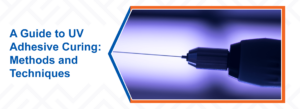Advantages Of Structural Adhesives
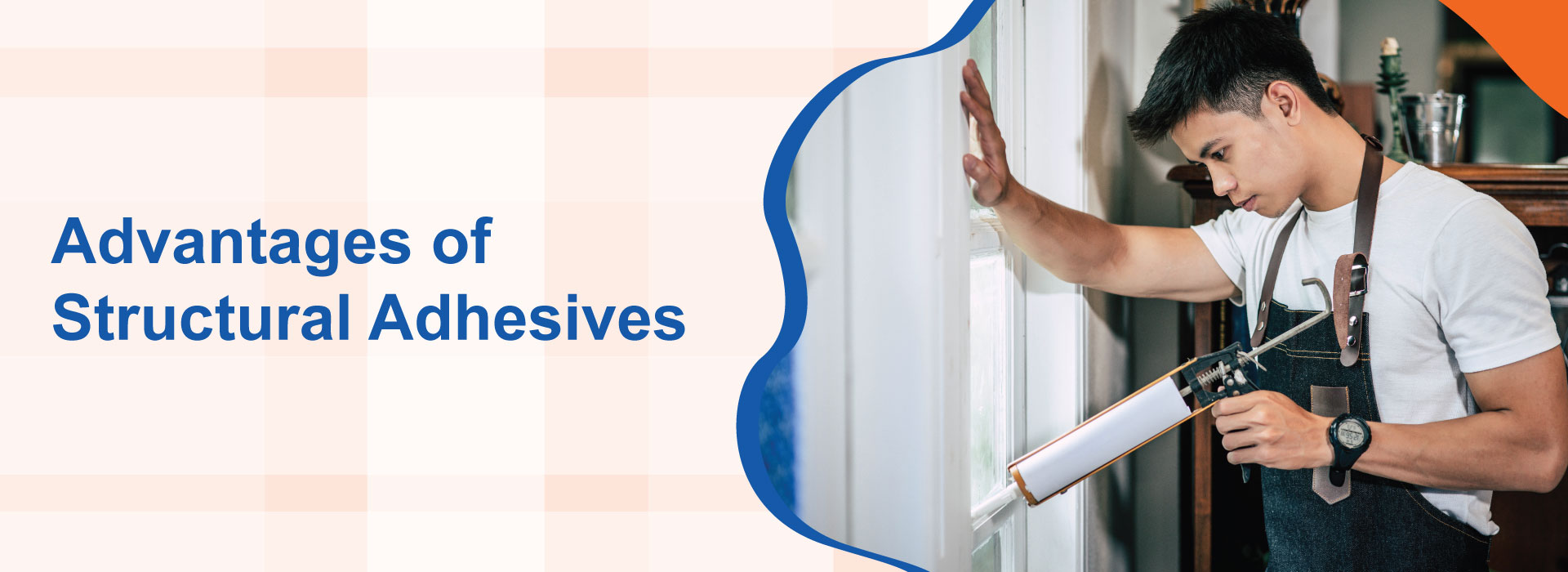
Structural adhesives are getting popular in aerospace, automobile, and several other industries. They offer a number of properties that fasteners are simply unable to offer including flexibility and versatility. As a result, most new projects are substituting epoxy structural adhesive for fasters.
This trend is gaining momentum in several industries and those seeking to use them in their next project must know about their advantages. In this blog, we will go over what defines structural adhesives, the several advantages of structural adhesives and how they are used throughout several industries.
A] What Are Structural Adhesives?
In simple terms, structural adhesives are high-strength adhesives that are used for engineering applications. They are designed to bond two substrates together with durability and longevity. They are also sometimes referred to as load-bearing adhesives. Structural bonding adhesives are required to provide long-lasting and reliable bonds between substrates.
Certain non-structural adhesives too can offer high bonding strength but degrade when exposed to vibrations, heat, chemicals, and weather conditions. This can cause adhesive failure leading to catastrophic results. Structural adhesives on the other hand can weather all kinds of external disturbances and continue to offer strong structural support.
B] Advantages Of Structural Adhesives
1. Higher Bonding Strength
One of the key advantages of structural bonding adhesives is the high level of bonding strength they offer. Some structural adhesive formulations offer bond strength between two substrates comparable to welding.
The strength of the structural adhesive depends on its type and formulation. As epoxies are naturally some of the strongest types of adhesives, structural epoxy adhesives have the highest bond strength. You can ask an adhesive manufacturer to custom-make an epoxy according to your requirements.
One of the main reasons why structural adhesives can offer such high strength is their uniform stress distribution. When substrates bonded using fasteners experience mechanical stress, the stress is distributed around the fasteners. This increases the risk of structural failure. On the other hand, the uniform distribution of stress enables adhesives to handle higher stress.
2. Resistance To Vibration And Movements
Constant vibrations and movements can lead to the deterioration of fasteners like screws and rivets. They can form micro-cracks or become loose over time, which affects the structural integrity of the substrates. This is a prevalent and serious issue for the automotive and aerospace industries. Hence, several industry leaders have opted to use specifically tailored structural adhesives instead, such as aerospace adhesives, automotive structural adhesives , and oil and gas adhesives.
Structural adhesives are very flexible and can absorb vibrations, keeping the components safe. Certain formulations can even withstand extreme levels of vibration. This additional flexibility reduces the chances of bond failure in extreme cases. Vibrations are prevalent in almost every industrial application and can cause considerable damage to structures.
3. Extremely Versatile
Structural epoxy adhesives are used in several engineering applications across various industries. Their versatility is remarkable and can be formulated for different applications. If you require a fast-curing adhesive or a slow-curing one? A heat-curing one, or one that resists chemicals and acids? Structural epoxy adhesives can be customised for all of these applications.
Even though there are limitations to how much the epoxy can be customised to have the desired properties, they can be customised to a great length. This customizability and versatility allow manufacturers and industry experts across various sectors to reliability use structural adhesives for their projects. They are also well-suited for bonding dissimilar materials, unlike welding which only works on metal.
4. Very Lightweight
One of the recent trends that we see across several industries is making the finished product lighter. This trend can be seen across automotive, electronics, OEM, aerospace, and medical electronic industries. As a result, several companies are looking for alternatives to metallic fasteners which increase the overall weight of the finished product.
Structural adhesives are a lightweight alternative to metal screws and rivets. Using structural adhesives instead can significantly reduce the weight of the finished product or structure. Being lightweight improves portability and reduces the risk of fall damage. Using adhesives instead of metal also has the added advantage of preventing rust.
5. Resistance To Extreme Heat And Cold
Most structures and machinery have to go through dynamic temperature changes. This may be due to the weather, working conditions, or any other external factors. Most metals used to make fasteners can melt or rust in extremely high temperatures and some become brittle when exposed to extreme cold temperatures.
This compromises the structural integrity of the bond and the structure by extension. Structural epoxies are not only resistant to such extreme temperatures but can form strong and sturdy bonds despite it. They can be customised to handle extremely high or low temperatures.
Conclusion
While there are several methods to bond two substrates, using structural adhesives to do so is the cutting-edge way. Structural epoxy adhesives bring a lot of advantages with them which other bonding methods do not provide. Structural adhesives are versatile and highly customisable, leading to their widespread adoption across sectors.
The final say on which bonding method you should pick for your next project is up to you. But, if you have decided on using structural epoxy adhesives, contact us today! Our experts will not only help you with the selection of the right adhesive formulation for your requirements but also customise the adhesive for your unique application requirements.

Utsav Shah is a 34-year-old entrepreneur with a passion for scientific discovery. Utsav’s journey began with a deep dive into materials science, earning degrees from USC and the Institute of Chemical Technology. He’s the visionary founder of Kohesi Bond, a top-rated adhesive manufacturer, and Cenerge Engineering Solutions, a leader in heat exchangers and cryogenic pumps. With over a decade of experience, Utsav consults across various industries, ensuring they have the perfect adhesive solution for their needs. Connect with him on LinkedIn!
Recent Blogs
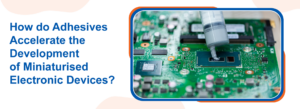
How do Adhesives Accelerate the Development of Miniaturised Electronic Devices?
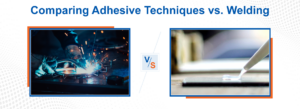
Comparing Adhesive Techniques vs. Welding
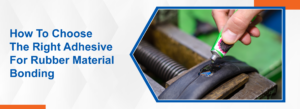
How To Choose The Right Adhesive For Rubber Material Bonding
